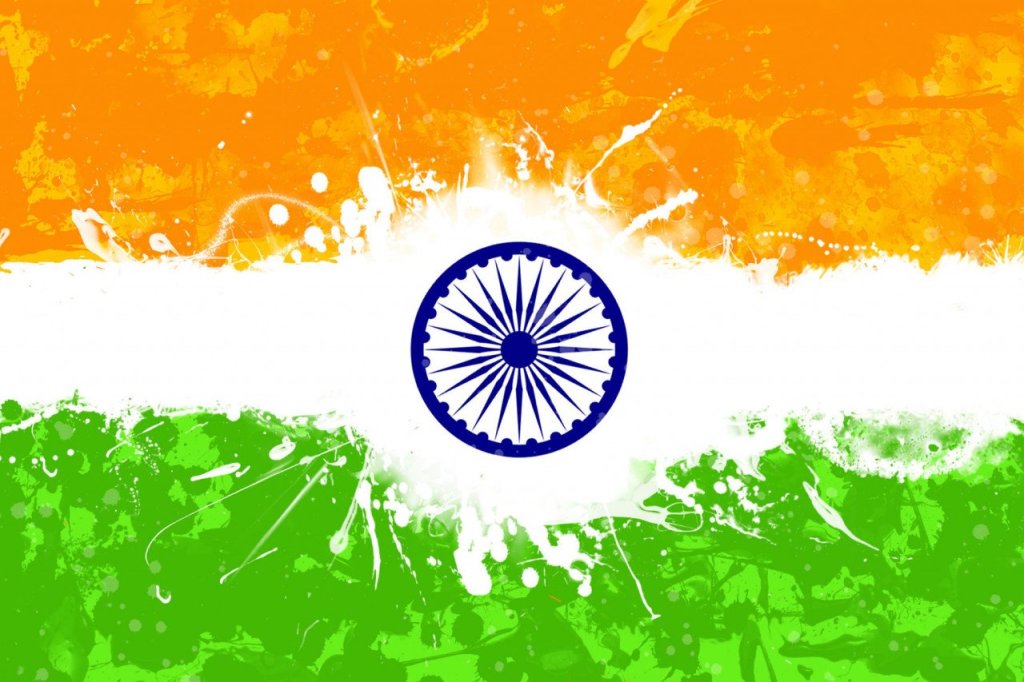Cyberbullying women in Australia and Laws by Dr Debarati Halder

Cyber bullying targeting women is rampant in Australia. However, there are no universal legal definition of cyber bullying or misogynist bullying in Australia and as such, it has not received any focused legal attention still now.
Different stakeholders have given different definitions of cyber bullying (which is not gender specific). As such, according to Australian Human Rights Commission, cyber bullying is defined as “…….. bullying that is done through the use of technology. For example, using the Internet, a mobile phone or a camera to hurt or embarrass someone is considered cyberbullying. It can be shared widely with a lot of people quickly, which is why it is so dangerous and hurtful.”[1]
Australian cybercrime online reporting network (ACRON), an Australian government initiative however defines cyber bullying from the perspective of cyber stalking and states that:
“Cyber-bullying or stalking occurs when someone engages in offensive, menacing or harassing behaviour through the use of technology. It can happen to people at any age, anytime, and often anonymously.
Examples of cyber-bullying include:
posting hurtful messages, images or videos online
repeatedly sending unwanted messages online
sending abusive texts and emails
excluding or intimidating others online
creating fake social networking profiles or websites that are hurtful
nasty online gossip and chat, and
any other form of digital communication which is discriminatory, intimidating, intended to cause hurt or make someone fear for their safety.”[2]
According to ACRON, not all online bullying is criminal.[3] It is an unfortunate fact that women form the major group of victims of cyber bullying in Australia. Several researchers have shown that women professionals including media personalities, activists, journalists etc are regularly targeted online by way of cyber bullying.[4] According to Halder & Jaishankar(2016), online gender bullying is a feminist perception of adult cyber bullying.[5] However, D’Souza, Griffin, Shackleton & Walt (2018) had addressed online gender bullying from the perspective of gendered hate speech (GHS). They have shown that there exists a serious legal lacuna in addressing GHS including cyber bullying targeting women in Australia. Like many other jurisdictions, in Australia also, cyber bullying targeting women may not be considered as a criminal offence unless it falls within the ambit of defamation or racial or sexual discriminatory act or creates grave threat. In case of cyber bullying targeting women falls under the category of defamation, certain provincial laws penalizing defamation may be used; these may include Ss 13-20 of Defamation Act, NSW etc. However, most of these laws fall within the ambit of civil penalties. The Federal Criminal Code also offers some solace vide Ss.474.17, 474.15 etc whereby it has been penalized to use “internet and telecommunication services for harassing, creating menace or causing offence and usage of internet and telecommunication services for creating threat and online blackmailing”(Halder & Jaishankar, 2012).[6]
While there is no focused law to penalize cyber bullying targeting women in Australia, the issue is neither neglected by the government and private stakeholders. ACORN offers its services to counsel and handle reports of cyber bullying through its web portal @ https://report.acorn.gov.au/ . Similarly, Australian Human Rights Commission also receives complaints of discrimination, harassment and bullying in their web portal @http://www.humanrights.gov.au/complaints_information/index.html
[1] See “Cyberbullying: what is it and how to get help: Violence, Harassment and Bullying Fact sheet”. Published in https://www.humanrights.gov.au/cyberbullying-what-it-and-how-get-help-violence-harassment-and-bullying-fact-sheet. Accessed on 06.04.2019
[2] See https://www.acorn.gov.au/learn-about-cybercrime/cyber-bullying Accessed on 06.04.2019
[3] Ibid
[4] For example, see pp 107-108 in Halder D., & Jaishankar, K. (2012). Cyber Crime and the Victimization of
Women: Laws, Rights, and Regulations. Hershey, PA, USA: IGI Global.
ISBN: 978-1-60960-830-9., Tanya D’Souza; Laura Griffin; Nicole Shackleton; Danielle Walt, Harming Women with Words: The Failure of Australian Law to Prohibit Gendered Hate Speech, 41 U.N.S.W.L.J. 939 (2018)
[5] See Halder D., & Jaishankar, K (2016.) Cyber crimes against women in India.
New Delhi: SAGE Publications. ISBN: 9789385985775 pp.49-50
[6] Halder D., & Jaishankar, K. (2012). Cyber Crime and the Victimization of
Women: Laws, Rights, and Regulations. Hershey, PA, USA: IGI Global. Pp 107-108
Preventing Cyber Bullying by policy implementation The Hungarian example By Dr. Fruzsina Borbala Onodi

In some aspects the Digital Age, the rapid evolution of technology and the wide and easy access to the internet has reached Hungary unprepared.
According to the latest research of the European Commission[1] young people and children are today among the largest user groups of online and mobile technologies in Europe. Children start using the Internet at the age of 7; between the age of 9 and 16, the average time they spend online amounts to 88 minutes. Now, that can be a worrisome information if we add that in Hungary 41 percent of the parents have no idea what their 8-year old kids are doing when they are active online.
Researches on youth showed that the internet would be one of the biggest dangers in our lives in the future. Six universities and research institutes conducted an international comparative study in order to get a clear picture of youth’s usage of drugs, criminal behavior and how to prevent these. From Hungary two researchers, Ms Olga Tóth and Ms Fruzsina Albert participated in the research from the Hungarian Academy of Sciences. The research shows that, almost all of the answering experts (92 percent) predict that the number of internet related crimes will increase in the future.
The National Crime Prevention Council of Hungary has decided todo anotherresearch in the field to get a better picture of the national situation. It tasked the well-regardedEötvösLoránd University to carry out a research on youth involving 10 000 students. This is nearly 5 percent of the whole population of kids participating in elementary education. The research found that age, family background, type of the school, friends and many other aspects have impact on how the child behave online.
Among others, the research was focusing on the phenomenon of cyberbullying. It turned out that two-thirds of the respondents have experienced some sort of bullying online. It has been shown that it’s more common among younger classes and those who live in patchwork families and negligible among those who live in families with higher status.
Many children who have these types of experiences take action in response. Most of them, 83% reported about some sort of interventions when they noticed something worrying but the older the respondents were this number dropped. 70 percent stated that the intervener was a member of the peer group, 47 percent mentioned the teachers and 12 percent the parents.
After learning these numbers the National Crime Prevention Council decided to take an action.
The National Crime Prevention Council of Hungary is an independent governmental body. It was established on 13 April 2011 by Government Decree 1087/2011 in order to create a high level of public safety, combat crime and take steps to combat offenders and the factors leading to crime. As an advisory entity its main aim is to operate the new models of crime prevention effectively and to coordinate the development and implementation of action plans.
The Council has an operative body, the Secretariat which is a department within the Ministry of Interior. The Secretariat is responsible for the implementation of the National Crime Prevention Strategy and the current Action plan.
The Strategy -which is a Governmental Decree- is the guideline for the Secretariat. It sets out the necessary legislative, organizational development, training tasks for the next ten years as well as public awareness programmes and the possibilities of promoting societal actions in the area of crime prevention. The four priorities stated in the Strategy are:
- enhancement of urban security
- prevention of juvenile delinquency,
- prevention of victimization and providing support for victims,
- Avoidance of repetition of offences.
Taking steps to prevent cyberbullying is a task within the second priority, prevention of juvenile delinquency. In connection with this point the Secretariat works together with many stakeholders. Such partners are schools, the police, members of the social care services and other experts working with youth. Thanks to this long and fruitful cooperation the Secretariat has an accurate knowledge about the challenges the teachers have to face in their everyday work. One of this is the relatively recent emergence of the Internet, and the ever-increasing ease of access to web, that has unmistakably usurped the teacher from the former role as dictator of subject content[2]. Furthermore these days, teachers feel they had to work harder to capture and hold students’ attention. Some even say it’s impossible. Nearly 90 percent said that digital technologies were creating an easily distracted generation with short attention spans. They are truly worried that technology is causing a deeper shift in how students learn.
The Secretariat have learnt through its projects that are based on experimental education that by giving a playful cover to the preventive content achieve greater success, especially among youth.
Trainings organized or supported by the Secretariat counts as pioneers in terms of methodology since the Hungarian education system in general still applies traditional, frontal teaching approaches. Traditionally, students have most often been rewarded for competing rather than cooperating with one another. Teachers are not often called upon for collaborative work either. Teaching has traditionally been an activity carried out in isolation from one’s peers, behind closed doors. Principals, accustomed to the traditional hierarchical structure of schools, often do not know how to help their teachers constitute self-managed work teams or how to help teachers coach students to work in cooperative teams. The techniques of experiential education can help students and staff to adjust to teamwork, an important part of the process of reforming schools.[3]
Experiential education is more efficient than passive learning like reading or listening.
Let me share some features which characterise the trainings of the Secretariat:
- Participants are personally engaged.
- Reflective thought and opportunities for participants to write or discuss their experiences are ongoing throughout the process. This helps the personal/ development of the self-esteem/ self-awareness.
- The whole person is involved, meaning not just their intellect but also their senses, their feelings and their personalities.
- Experiences are designed to evoke decision-making, initiative, relationship building and accountability in participants.
- Experiential learners are encouraged and expected to be inquisitive and ask questions, experiment and apply creativity, use problem solving skills and take responsibility.
- The skill set and experiences gained through experiential education programs form a foundation that can be applied and adapted to real-world scenarios and problems in the future.
- With every experience, participants and learners are given the opportunity to explore their own values and to come away with an enhanced and broadened perspective and set of tools.
- The design of the learning experience includes the possibility to learn from natural consequences, mistakes and successes.
Applying experimental education in online safety trainings
“Save Gordon!” is a crime prevention program based on experiential education developed by the Crime Prevention Subdivision of Zala County Police Headquarters in the framework of a project financed by the National Crime Prevention Council called “Network for safety”. The idea of the program is based on the experience that in a world full of information and stimulus it is hard to achieve objectives with preventive trainings in schools. Previously it was easy to attract the attention of the students with topics like drugs and crimes, but now all the information is available on the internet. With transforming the prevention topics into a playful form, it tries to regain the attention of the children.
The concept of the program is based on the popular “escape games”. In these series of activities there are “Escape rooms”, which is also known as “escape game”. It is actually a physical adventure game to solve puzzles and riddles using clues etc within a set time limit.[4]The experience shows that the information can better be transferred through this communication channel to the age group of 10-14.
When planning the program the creators concentrated on cooperative working methods. Students work in groups and while it seems that they compete with each other in reality they have to cooperate. They work off the topic of cybercrime together; they share the information and learning experiences with each other. In team work children can achieve goals with helping each other and not with rivalry. It requires taking responsibility for a common goal – with all its advantages and difficulties.
Cyber safety is only one of the topics the game contains. The creators tried to include typical problems that occur to the children. In our experience ostracism, bullying, fight, theft is present at the everyday life of the students so these topics are also included in the game – Although the main emphasis is put on cyber safety.
How does the program work?
Gordon is a bear who is handcuffed and waiting for somebody to rescue him. The time for the rescue is 90 minutes and by the end the students get the key to open the handcuff.
In that certain period of time students have to solve different exercises, logical tasks, quizzes to get small information packages related to crimes. Each team collect data on different topics. To get the last code that finally frees Gordon they have to share the accumulated knowledge with the other teams.In the game there is hidden information and exercises about the topic of cybercrime such as “Choose which pictures you would post on facebook.” At the end of the game the teams have to discuss the following questions with each other: “What would you do if you got offensive messages online?” “What can you do when seeing/experiencing bullying at school?” “Why shouldn’t we share our personal data on the internet?”
Students get direct and indirect information about necessary safety steps in digital area.
The last part is a survey that contains questions for each team. The whole class have to work together and discuss the questions. This is the most important part of the game because this section gives the opportunity to have a real conversation about the mentioned crimes. The game coordinator can bring up personal examples and can ask the kids about their experiences.
The Secretariat of the National Crime Prevention Council has all the necessary equipment for the game. All police headquarters can apply for them via tender in case they are in contact with educational institutions dealing with the age group concerned. Due to the complexity of the exercises it is important for the applicant to take part in the game before leading it.To help their preparation the Secretariat organizes open training days for the officers to play the game and schedule classes for them where they can test their teaching skills.
The monitoring and controlling activities are done by the Secretariat.There hasn’t been any process or affect evaluation yet, but in the near future the Secretariat is planning to create a proper evaluation scheme for the programme. The Secretariat would like to know whether the game has affected thekid’s online behaviour and how and whether the police officers in charge use the game on a regular basis.
The project was financed by the National Crime Prevention Council.The total cost of the program is 9 200 000 HUF (29 820 EUR). One „package” of equipment costs 400 000 HUF (1 296 EUR).
The Secretariat believes the project can be easily replicated in other countries and can also be used in other topics, not only cybercrime.
[1] For more information, see https://ec.europa.eu/digital-single-market/en/content/safer-internet-better-internet-kids
[2] For More information, see https://www.theatlantic.com/education/archive/2015/03/the-deconstruction-of-the-k-12-teacher/388631/
[3] For more information on this, see https://www.aee.org/what-is-ee
[4] See for more information @ Nicholson,S.(2015).Peeking behind the locked door: A survey of escape room facilities.White Paper available at http://scottnicholson.com/pubs/erfacwhite.pdf. Retrieved on 10.08.2018







